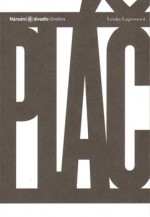Dramatist, author of radio plays, recipient of the Alfréd Radok Award (1998). Her plays have been performed at home and abroad and have been published in English and Korean. She was born in Brno on 22 September 1963.
Lenka Lagronová

From Stardust
Z prachu hvězd

Tears
Pláč
| Title | Publisher | Year | Selected published translations | Awards |
|---|---|---|---|---|
| From Stardust (Z prachu hvězd) | Národní divadlo | 2013 | ||
| Tears (Pláč) | Národní divadlo | 2009 |

From Stardust
Z prachu hvězd

Tears
Pláč
Praise
[Lagronová] deliberately submits her characters to romantic desires but also emotions resulting from inner frustration. At the same time, she also treats their actions in the course of the play with the same degree of irony. In the nostalgic atmosphere of the text, therefore, there is also a place for the author’s distinctive brand of humour.
—Hana Hložková
Czech Radio
She studied dramaturgy at the Theatre Faculty of the Academy of Performing Arts, though she worked as a dramaturge solely with the director Petr Lébl. She began writing plays when she was at school. Her first play was Nevím kudy kam (I Don’t Know Which Way, 1988). “In Lenka Lagronová’s dramatic world the central character is always a woman. The main character, where we sense some autobiographical traits, matures with the author. Behind every drama we sense a strong experience, an internal shift. From the immature and unbalanced Marie through to Anna, Květa, Marta, Beátka and Věra, whose name deliberately shares the root word for faith in Czech (víra). In each of them there is an echo of previous and future characters. All of them have similar characteristics and think about the same issues. Fundamentally their situations are identical; only the circumstances vary, thus allowing us to see into the heart of the matter,” wrote critic Tereza Dlasková about her work. “Her plays are characterized by a lyricism, an examination of the characters’ inner worlds and Christian teachings. Thematically they look at women who have been damaged by relationships – these can be intergenerational or romantic, but also social or historical,” added academic Lenka Jungmannová.
Lenka Lagronová’s work can be divided into two periods – from the beginning until 1997 when she wrote the play Terezka, which won the Alfréd Radok Award. In the same year she took the religious vows of chastity, poverty and obedience. Since then she has lived modestly in seclusion. She continues to write and her plays have also been published, the majority which are regularly performed in several Czech theatres. She has published a collection of her plays called Hry (Plays, Větrné mlýny, 2010), which contains eleven dramas (Markýza, Tanečník, Antilopa, Terezka, Království, Nikdy, Miriam, Johanka, Etty Hillesium, Pláč, Křídlo [Marquee, The Dancer, Antelope, Terezka, Kingdom, Never, Miriam, Johanka, Etyy Hillesium, Tears, Wing]). “There is a strong spiritual tone throughout her plays and Lagronová places unusually strong emphasis on the word. Her stories are conceived as strong religious experiences and a Christian message is to be found in her plays. Ever-present are the themes of pain, solitude and the longing for a fulfilled as well as certain life connected with a higher being,” wrote Lenka Jungmannová about the collection.
Lenka Lagronová’s last work to date is the play Z prachu hvězd (From Stardust), which the Kolowrat Theatre has been performing since 2013. Lagronová also dramatized Olga Tokarczuk’s book Svůj vůz i pluh veď přes kosti mrtvých (Drive Your Plough Over the Bones of the Dead), which was performed as Čupakabra (Chupacabra) by the Masopust company at the Eliade Library at the Theatre on the Balustrade. The play has been characterized thus, “Unlike the novel, in her play Lenka Lagronová condenses the action into one day when the hunt takes place and is rounded off by the consecration of a hunting lodge. However, the peaceful plan goes awry due to a series of murders with several suspicious animals in attendance. What’s more, there is a new resident in the village and Lagronová examines the villagers’ ‘normal’ life through her eyes. The playwright lends the text a lyrical-surrealist poetic, heightened in places to an atmosphere of near horror. The parodical passages of this hunting mystery pose questions about how better to order society, as well as people’s relationship to nature and to weaker creatures in general.”
